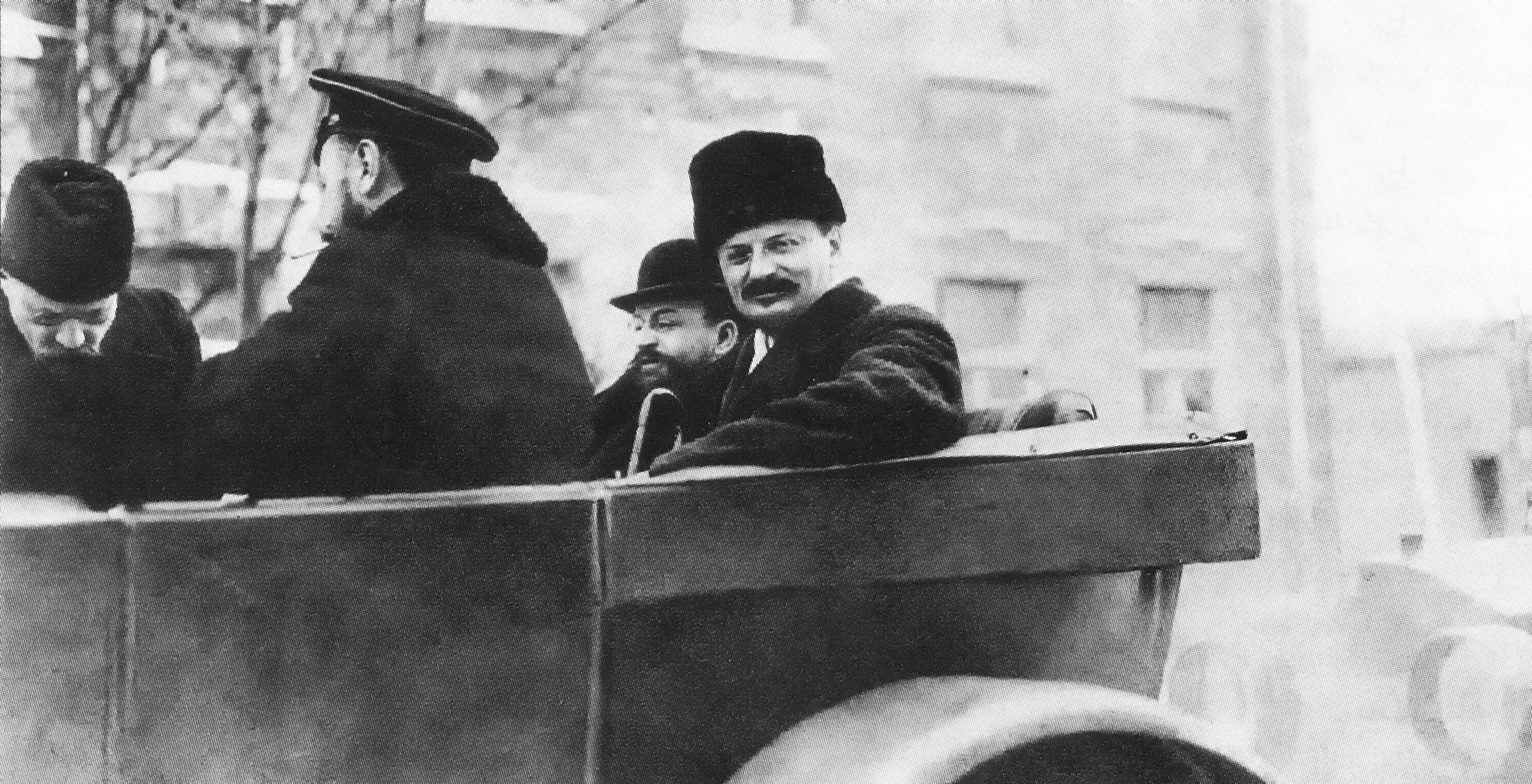 |
| Leon Trotsky in Petrograd, winter 1918\1919. Scan by "Der Speigel" (2008), via Wikimedia. |
 The Revolution Betrayed by Leon Trotsky
The Revolution Betrayed by Leon TrotskyMy rating: 5 of 5 stars
When I lecture I will often, in the heat of the moment, say things based on my understanding of the topic, and oftentimes it is hard to pin-point where this knowledge came from - a case of: how do I know what I know? The experience usually sends me back to the books to reconfirm my knowledge. Whenever I read the classic political science texts from J.S. Mill, Rousseau, Hobbes, Locke, Burke, et al., I feel as though I am reading what I know. This is clearly a result of my education, but after having read these works, a series of gaps in my knowledge is simultaneously filled, and then, like a muscle at the gym, ripped asunder. To be sure, this is how we learn and improve, but the experience to this day leaves me feeling desperate for more time on this earth to learn the things I do not know - a list that grows daily. And Trotsky's work read like a familiar text. I may have read parts of it before, but in my class readers during my political science degree. But to rediscover these words and thoughts and ideas and ideals is mind-blowing. Trotsky was clearly a genius. This cannot be denied. But he was a politician in the same vein as Dr John Hewson: Fightback! was brilliant, and it has been for the most part implemented, but Dr Hewson was not a popular politician, Fightback! was a (in a "presentist" sense) a policy failure, yet Dr Hewson was right all along. I am probably drawing a long bow by putting Dr Hewson in the same category as Trotsky, but the same high intellectual-low political capability divide is evident. Parts of this work remind me of an old Soviet joke:
Comrade 1: What is the difference between capitalism and communism?
Comrade 2: In capitalism, man exploits man. In communism, it is the other way around.
Trotsky points out all the theoretical problems with Stalinism, and brings in a useful comparison with the French Revolution, a common thread throughout the work, with the Thermidorian reaction to Robespierre explaining what was happening in Russia in the mid-1930s. Trotsky has no issue with deviations from the communist plot. He is well-aware that Russia was not meant to be where the great international revolution would begin. But now that it had, then some things had to be taken into account. Trotsky's issue was that these deviations from the plot, albeit necessary, were being hidden in bureaucratic nonsense, enabling the exploitation of man by man pretending to be a system that was meant to be overthrowing this very system. Trotsky's arguments are so solid that Stalin had to "liquidate" his ideas. The habit of purging, of course, was the antithesis of the Marxian ideal, and showed Stalin's "socialism within one country" as little more than a nouveau-bourgeois power-grab. Ultimately, Trotsky's predictions proved correct, and the rest is history. Trotsky's attack on the international "friends of socialism", in particular the Webbs (Sidney Webb and Beatrice Webb), demonstrates his commitment to theoretical communism. I suspect that Lenin had the political nous that Trotsky lacked. Little wonder the back cover blurb states, accurately, that this work is "one of Marxism's most important texts". That communist theory has been so routinely dismissed because of Stalinism and the Russian experience is premature. In the long course of history, especially as technological developments mean there is less for more of us to do, if life continues as it does now, forevermore, then the extinction of the species will demonstrate natural justice in a way that our theorising never could.
View all my reviews
 Donate
Donate






No comments
Post a Comment